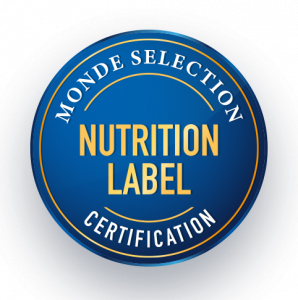3 Dehghan, M., Mente, A., Rangarajan, S., Mohan, V., Lear, S., Swaminathan, S., . . . Yusuf, S. (2020). Association of egg intake with blood lipids, cardiovascular disease, and mortality in 177,000 people in 50 countries. The American Journal of Clinical Nutrition, 4, pp. 795–803. doi:10.1093/ajcn/nqz348
4Krittanawong, C., Narasimhan, B., Wang, Z., Virk, H., Farrell, A. M., Zhang, H., & Tang, W. (2021). Association Between Egg Consumption and Risk of Cardiovascular Outcomes: A Systematic Review and Meta-Analysis. The American Journal of Medicine, 1, pp. 76–83.e2. doi:10.1016/j.amjmed.2020.05.046
5 Zhuang, P., Wu, F., Mao, L., Zhu, F., Zhang, Y., Chen, X., . . . Zhang, Y. (2021). Egg and cholesterol consumption and mortality from cardiovascular and different causes in the United States: A population-based cohort study. PLOS Medicine, 2, p. e1003508. doi:10.1371/journal.pmed.1003508
6 British Heart Foundation. (2021). Do eggs raise your risk of heart disease and death? Retrieved June 2021, from https://www.bhf.org.uk/informationsupport/heart-matters-magazine/news/behind-the-headlines/egg-risks
7 European Food Information Council. (2021). In the news: Will eating 3 eggs a week increase your risk of dying young? Retrieved June 2021, from https://www.eufic.org/en/newsroom/article/in-the-news-will-eating-3-eggs-a-week-increase-your-risk-of-dying-young
8 Jacobson, T. A., Maki, K. C., Orringer, C. E., Jones, P. H., Kris-Etherton, P., Sikand, G., La Forge, R., Daniels, S. R., Wilson, D. P., Morris, P. B., Wild, R. A., Grundy, S. M., Daviglus, M., Ferdinand, K. C., Vijayaraghavan, K., … NLA Expert Panel. (2015). National Lipid Association Recommendations for Patient-Centered Management of Dyslipidemia: Part 2. Journal of Clinical Lipidology, 9(6 Suppl), pp. S1–122.e1. doi:10.1016/j.jacl.2015.09.002
9 Mach, F., Baigent, C., Catapano, A. L., Koskinas, K. C., Casula, M., Badimon, L., Chapman, M. J., De Backer, G. G., Delgado, V., Ference, B. A., Graham, I. M., Halliday, A., Landmesser, U., Mihaylova, B., Pedersen, T. R., … ESC Scientific Document Group. (2020). 2019 ESC/EAS Guidelines for the management of dyslipidaemias: lipid modification to reduce cardiovascular risk. European Heart Journal, 41(1), pp. 111–188. doi:10.1093/eurheartj/ehz455
10 Food and Agriculture Organization of the United Nations. (2010). Fats and fatty acids in human nutrition: Report of an expert consultation. Geneva. Retrieved from https://www.who.int/nutrition/publications/nutrientrequirements/fatsandfattyacids_humannutrition/en/
11 U.S. Department of Health and Human Services and U.S. Department of Agriculture. (2020). Dietary Guidelines for Americans, 2020-2025. 9th Edition. Retrieved June 2021, from https://www.dietaryguidelines.gov/resources/2020-2025-dietary-guidelines-online-materials
12 European Food Safety Authority. (2010). Scientific Opinion on Dietary Reference Values for fats, including saturated fatty acids, polyunsaturated fatty acids, monounsaturated fatty acids, trans fatty acids, and cholesterol. EFSA Journal, 8(3), 1461. doi:10.2903/j.efsa.2010.1461
13 Public Health England. (2016). Government Dietary Recommendations: Government recommendations for energy and nutrients for males and females aged 1 – 18 años and 19+ años. Retrieved from https://assets.publishing.service.gov.uk/government/uploads/system/uploads/attachment_data/file/618167/government_dietary_recommendations.pdf
14 Health Canada, Government of Canada. (n.d.). Dietary Reference Intakes Tables (last updated: 2010). Retrieved June 2021, from https://www.canada.ca/en/health-canada/services/food-nutrition/healthy-eating/dietary-reference-intakes/tables.html#rvm
15 National Health and Medical Research Council, Australian Government Department of Health and Ageing, New Zealand Ministry of Health. (2006). Nutrient Reference Values for Australia and New Zealand Including Recommended Dietary Intakes (last updated: 2017). Retrieved from https://www.nhmrc.gov.au/about-us/publications/nutrient-reference-values-australia-and-new-zealand-including-recommended-dietary-intakes#block-views-block-file-attachments-content-block-1
16 National Health Commission of the People’s Republic of China. (2017). Dietary Reference Intakes for Chinese Residents, Part 1: Macronutrients (中国居民膳食营养素参考摄入量第1部分:宏量营养素). Retrieved from http://www.nhc.gov.cn/wjw/yingyang/201710/fdade20feb8144ba921b412944ffb779.shtml
17 Health Promotion Administration, Taiwan Ministry of Health and Welfare. (2020). Dietary Reference Intakes Eighth Edition: Macronutrients Protein and lipid chapter (draft) revision (「國人膳食營養素參考攝取量」第八版-巨量營養素: 蛋白質及脂質章節(草案)增修訂 線上說明會之重點紀要). Retrieved June 2021, from https://www.hpa.gov.tw/Pages/List.aspx?nodeid=4247
18 World Health Organization & Food and Agriculture Organization of the United Nations. (1994). Fats and oils in human nutrition: Report of a Joint FAO/WHO Expert Consultation. Rome. Retrieved from https://www.who.int/nutrition/publications/nutrientrequirements/9251036217/en/
19 U.S. Department of Health and Human Services and U.S. Department of Agriculture. (2010). Dietary Guidelines for Americans 2010. 7th Edition. Retrieved June 2021, from https://health.gov/our-work/food-nutrition/previous-dietary-guidelines/2010
20 U.S. Department of Health and Human Services and U.S. Department of Agriculture. (2015). 2015 – 2020 Dietary Guidelines for Americans. 8th Edition. Retrieved June 2021, from https://health.gov/our-work/food-nutrition/previous-dietary-guidelines/2015
21 Ministry of Health, Labour and Welfare, Government of Japan. (2020). Dietary Reference Intakes for Japanese (2020): Report of the Study Group on the Dietary Reference Intakes for Japanese People (日本人の食事摂取基準(2020 年版): 「日本人の食事摂取基準」策定検討会報告書). Retrieved from https://www.mhlw.go.jp/stf/newpage_08517.html
22 Fujioka, Y. (2018). Diet therapy in Japan Atherosclerosis Society (JAS) Guidelines for Preventing Atherosclerotic Cardiovascular Disease 2017 (動脈硬化性疾患予防ガイドライン2017における食事療法). Journal of the Japanese Coronary Association, 24(1), pp. 20-25. doi:10.7793/jcoron.24.003
23 National Institute for Health and Care Excellence. (2008). Clinical guideline [CG71]: Familial hypercholesterolaemia: identification and management (last updated: 2019). Retrieved from https://www.nice.org.uk/guidance/cg71
24 National Institute for Health and Care Excellence. (2014). Clinical guideline [CG181]: Cardiovascular disease: risk assessment and reduction, including lipid modification (last updated: 2016). Retrieved from https://www.nice.org.uk/guidance/cg181
25 Heart UK. (n.d.). High cholesterol food. Retrieved June 2021, from https://www.heartuk.org.uk/low-cholesterol-foods/foods-that-contain-cholesterol
26 U.S. Department of Agriculture (USDA). (2020). FoodData Central: Egg, whole, raw. Retrieved June 2021, from https://fdc.nal.usda.gov/fdc-app.html#/food-details/1100183/nutrients
27 Agence nationale de sécurité sanitaire de l’alimentation, de l’environnement et du travail (Anses), France. (2020). Ciqual – Table de composition nutritionnelle des aliments: Oeuf, cru. Retrieved June 2021, from https://ciqual.anses.fr/#/aliments/22000/oeuf-cru
28 National Heart Foundation of Australia. (2019). Eggs & Cardiovascular Health: Summary of Evidence. Retrieved June 2021, from https://www.heartfoundation.org.au/health-professional-tools/Nutrition-Evidence-Summaries-and-Reviews
29 National Heart Foundation of New Zealand. (2016). Eggs and the Heart: Evidence Paper. Retrieved June 2021, from https://www.heartfoundation.org.nz/resources/eggs-and-the-heart-evidence-paper
30 Chinese Nutrition Society. (2016). Dietary Guidelines for Chinese Residents 2016 (中国居民膳食指南 2016). Retrieved June 2021, from http://dg.cnsoc.org/article/2016b.html
31 Health Promotion Administration, Taiwan Ministry of Health and Welfare. (2018). Daily Food Guide Booklet (每日飲食指南手冊). Retrieved June 2021, from https://www.hpa.gov.tw/Pages/EBook.aspx?nodeid=1208
32 Arnett, D. K., Blumenthal, R. S., Albert, M. A., Buroker, A. B., Goldberger, Z. D., Hahn, E. J., . . . Ziaeian, B. (2019). 2019 ACC/AHA Guideline on the Primary Prevention of Cardiovascular Disease: A Report of the American College of Cardiology/American Heart Association Task Force on Clinical Practice Guidelines. Circulation, 140(11), pp. e596–e646. doi:10.1161/CIR.0000000000000678
Show Less


